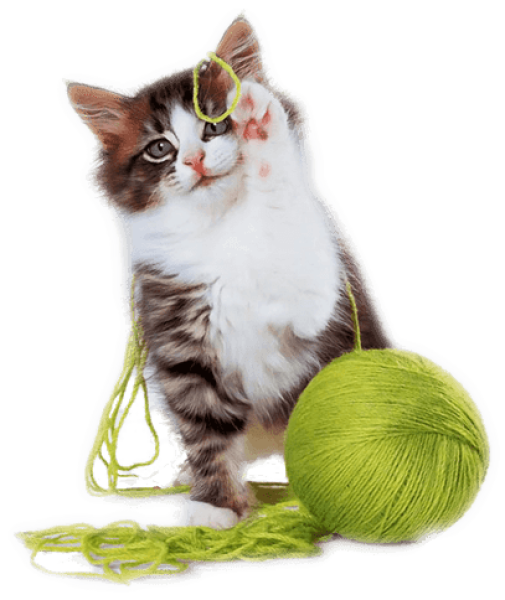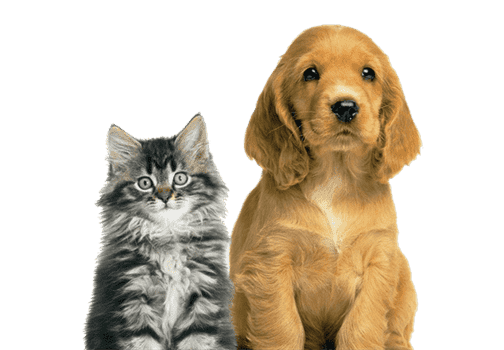Menu
Cats are obligate carnivores, meaning their physiology and metabolism are adapted to a diet primarily consisting of animal products. However, increasing interest in vegetarian and vegan diets for companion animals has led to significant research and debate regarding their safety and nutritional adequacy. This page aims to provide a comprehensive scientific evaluation of vegetarian and vegan diets for cats, addressing the physiological needs of cats, potential benefits and risks, and best practices for maintaining cat health on such diets.
Part 1: Understanding Nutritional Needs
Essential Nutrients for Cats
Cats require a range of nutrients to maintain optimal health, including proteins, fats, vitamins, and minerals. Key nutrients of particular importance include:
- Taurine: An amino acid essential for heart and eye health. Cats cannot synthesize taurine and must obtain it from their diet.
- Vitamin A: Cats cannot convert beta-carotene to vitamin A and must consume pre-formed vitamin A.
- Arachidonic Acid: A fatty acid found in animal tissues, crucial for skin health, reproduction, and growth.
- Niacin: Cats have a high requirement for niacin, which is naturally abundant in animal tissues.
Risks of Nutritional Deficiencies
Deficiencies in essential nutrients can lead to serious health problems such as:
- Taurine deficiency: Can cause dilated cardiomyopathy and retinal degeneration.
- Vitamin A deficiency: Leads to vision problems and skin issues.
- Arachidonic acid deficiency: Affects skin health and reproductive functions.
Part 2: Evaluating Commercial Vegetarian and Vegan Cat Foods
Quality and Nutritional Adequacy
Studies have shown variability in the nutritional content of commercially available vegetarian and vegan cat foods. Research by Kienzle and Engelhard (2001) and Gray et al. (2004) identified common deficiencies in these diets, including insufficient sulfur-containing amino acids, taurine, vitamins D and B12, arachidonic acid, and trace minerals.
Quality Control Measures
To ensure nutritional adequacy, manufacturers should implement rigorous quality control procedures, including regular laboratory nutritional analysis. Consumers are encouraged to request recent laboratory analysis results from manufacturers to verify the nutritional content of the diets they provide to their cats.
Part 3: Practical Considerations for Feeding Vegetarian and Vegan Diets
Nutritional Supplements
To meet the specific dietary needs of cats, the use of complete and balanced nutritional supplements is essential. Supplements should be carefully formulated to provide all necessary nutrients in appropriate amounts.
Monitoring Health and Nutritional Status
Regular health monitoring, including veterinary checkups and blood tests, is crucial for cats on vegetarian or vegan diets. Early detection of potential deficiencies or health issues can prevent serious complications.
Transitioning to a New Diet
When transitioning a cat to a vegetarian or vegan diet, gradual changes are recommended to minimize gastrointestinal upset. It is also advisable to regularly rotate different brands and formulations to reduce the risk of nutritional deficiencies.
Part 4: Managing Urinary Alkalinisation and Related Issues
Urinary Alkalinisation
Vegetarian diets may result in urinary alkalinisation due to their lower protein content. Alkaline urine can lead to the crystallization of urinary salts and the formation of stones (urolithiasis), potentially causing feline urological syndrome (FUS).
Monitoring Urinary pH
Regular monitoring of urinary pH is essential, particularly during diet transitions. Initial weekly checks followed by monthly monitoring are recommended. Non-absorbent plastic cat litter and pH test strips can be used to collect and test urine samples.
Preventing and Managing Urolithiasis
To minimize the risk of urinary stone formation and infections, several strategies can be employed:
- Dietary Magnesium: Low magnesium diets can reduce the formation of struvite stones.
- Water Consumption: Increasing water intake helps dilute urinary salts.
- Urinary Acidifiers: Certain foods and supplements, such as vitamin C and methionine, can help maintain a more acidic urinary pH.
Conclusion
The decision to feed a vegetarian or vegan diet to cats should be made with careful consideration of their unique nutritional needs. While it is possible to formulate plant-based diets that meet these needs, stringent quality control and regular health monitoring are crucial to ensure the long-term health and wellbeing of the cat. By following best practices and consulting with veterinary professionals, cat owners can provide nutritionally adequate and ethically sound diets for their feline companions.
References
- Baker DH, Czarnecki-Maulden GL. Comparative nutrition of dogs and cats. Annu Rev Nutr 1991; 11: 239-263.
- Belfield WO, Zucker M. Very Health Cat Book. New York, NY: McGraw-Hill Book Company. 1983. 153, 198.
- Blood DC, Studdert VP. Bailliere’s Comprehensive Veterinary Dictionary. London: Bailliere Tindall. 1988.
- Gillen J. Obligate Carnivore. Seattle, WA: Stein Hoist Books. 2003.
- Gray CM, Sellon RK, Freeman LM. Nutritional adequacy of two vegan diets for cats. J Am Vet Med Assoc 2004; 225(11): 1670-1675.
- Kienzle E, Engelhard R. A field study on the nutrition of vegetarian dogs and cats in Europe. Supplement to Compend Contin Educ Pract Vet 2001; 23(9A): 81.
- Tennant B. Editor in Chief. BSAVA Small Animal Formulary. 4th Edn. Gloucester, UK: British Small Animal Veterinary Association. 2003.
Why choose us
Why Choose Veganpet?
We offer cruelty-free, ethical products, prioritize pet health, provide exceptional service, and promote sustainable living for a better world.

Cruelty-free products
Compassionate choices for your beloved pets' well-being.

Ethical sourcing
Supporting sustainable practices and animal-friendly production methods.

Health-focused
Nutritious options to keep your pets happy and thriving.

Exceptional service
Dedicated to ensuring your satisfaction with every purchase.



